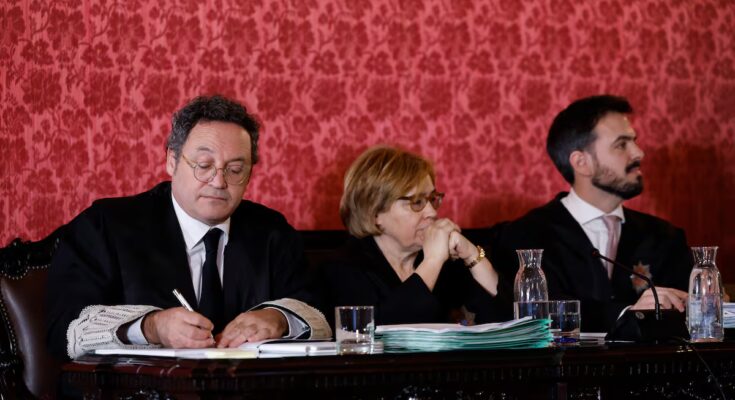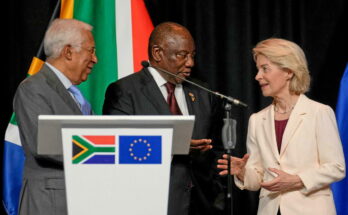The trial celebrated in the Supreme Court against Álvaro García Ortiz was the first against a state attorney general and García Ortiz is, since Thursday, the first chief prosecutor convicted of a criminal offense, in this case, revealing secrets. The sentence with the arguments on which the conviction is based has not yet been drawn up and only yesterday the court announced the content of its sentence, agreed with the vote of five of its seven members: two years of special disqualification for the role, a fine of 7,200 euros and the payment of compensation of 10,000 euros to Alberto González Amador, partner of Isabel Díaz Ayuso and tried for fraud at the Treasury. According to the sentence issued by the court and confirmed by consulted sources, the conviction only disqualifies García Ortiz “from the position of attorney general of the State”, but other rules that regulate the Prosecutor’s Office leave García Ortiz’s future up in the air and whether, a failure by the Supreme Court, it will imply his expulsion from the race.
The fiscal sources consulted indicate that what is foreseeable is that, once the sentence is notified and executed, the State Attorney General’s Inspection will open a file to determine how the sentence affects García Ortiz’s status as a public prosecutor. Article 32 d) of the Tax Career Regulations of 2022 includes among the reasons for which a public prosecutor loses this condition the fact of being sentenced with the penalty of “disqualification from holding public offices”. The Inspectorate will have to interpret whether this clause is applicable in this case given that he was sentenced with the special disqualification from the office of Attorney General. In any case, this article also provides for expulsion from the career when a “culpable crime” is committed against a public prosecutor, such as the one that the Supreme Court attributes to the head of the public prosecutor’s office.
García Ortiz, despite being attorney general, has not so far been subjected to the rules of the Prosecutor’s Office because he is in the special services and is not part of the career. But once the sentence has been carried out, or if he resigns before, he will lose that status which, according to tax sources, implies his “automatic” return to his tax career. And, from that moment, he will be subject to the legislation and affected by this precept.
However, this article of the regulation also provides that the State Attorney General (successor of García Ortiz) can “replace the loss of the capacity of public prosecutor with the sanction of suspension in cases where the sentence does not exceed 6 months”. This article refers, in turn, to Article 44 of the Organic Statute of the Public Prosecutor’s Office (EOMF), which authorizes the Chief Public Prosecutor to modify the expulsion of a suspended public prosecutor “in a reasoned manner and taking into account the nature of the crime committed”.



